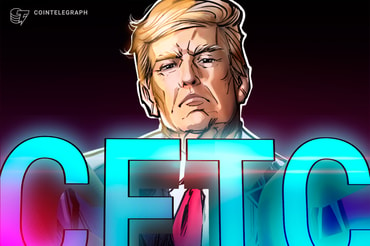Mt. Gox Effect? Bitcoin Dominance Drops Most in 5 Months

Bitcoin (BTC) is usually less volatile than alternative cryptocurrencies (altcoins), but Monday was different.
The leading cryptocurrency took a bigger hit than smaller tokens, leading to a marked slide in its market dominance in a compelling portrayal of the apprehensions about the impact of impending payouts to victims of a 2014 Mt. Gox hack.
BTC’s dominance, or share of total crypto market value, fell by 1.8% to 54.34%, the biggest single-day percentage decline since Jan. 12, according to charting platform TradingView. In other words, investors likely pulled money from bitcoin faster than from its peers. The cryptocurrency’s price fell nearly 5%, hitting lows under $59,000 at one point, CoinDesk data show.
The sell-off was not without cause. News that the defunct crypto exchange planned to distribute 140,000 BTC to the hack victims in July bolstered concerns the recipients would look to sell once they had their payouts, creating a supply overhang in the market. That added to pressures mounting since June 7 due to faster selling by miners and outflows from spot exchange-traded funds (ETFs).
Sell-off concerns boosted demand for short-term BTC put options on the Deribit exchange, according to data tracked by Amberdata. Put options offer protection against price slides in the underlying asset.
The seven-day and one-month call-put skews, which indicate what traders are willing to pay to acquire an asymmetric payout in the upward or downward direction over one week and one month, have flipped negative. That’s a sign of renewed demand for puts.
Some observers, however, say the actual selling pressure from Mt. Gox reimbursements may be more measured.
“The exact amount of Mt. Gox funds to be distributed in July are not specified, but it is part of a larger reimbursement plan that includes 142,000 Bitcoin and 143,000 Bitcoin Cash, as well as fiat currency totaling 69bn Japanese yen ($432mn),” Tagus Capital said in a market note.
“However, Mt. Gox creditors may hold their Bitcoin rather than sell, as they are long-term investors who resisted previous offers for USD payouts and may face capital gains tax on sales,” Tagus Capital said in a market note,” Tagus Capital added.
Edited by Sheldon Reback.
Disclosure
Please note that our privacy policy, terms of use, cookies, and do not sell my personal information has been updated.CoinDesk is an award-winning media outlet that covers the cryptocurrency industry. Its journalists abide by a strict set of editorial policies. In November 2023, CoinDesk was acquired by the Bullish group, owner of Bullish, a regulated, digital assets exchange. The Bullish group is majority-owned by Block.one; both companies have interests in a variety of blockchain and digital asset businesses and significant holdings of digital assets, including bitcoin. CoinDesk operates as an independent subsidiary with an editorial committee to protect journalistic independence. CoinDesk employees, including journalists, may receive options in the Bullish group as part of their compensation.
Omkar Godbole is a Co-Managing Editor on CoinDesk’s Markets team.

Published on Other News Site












